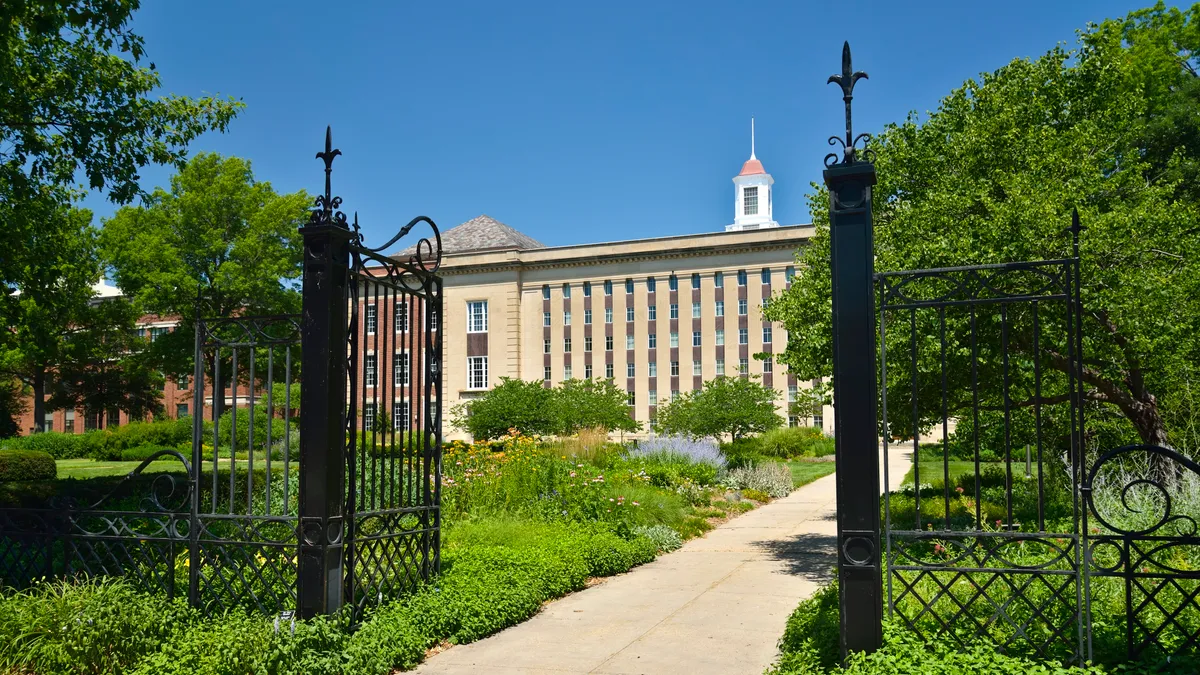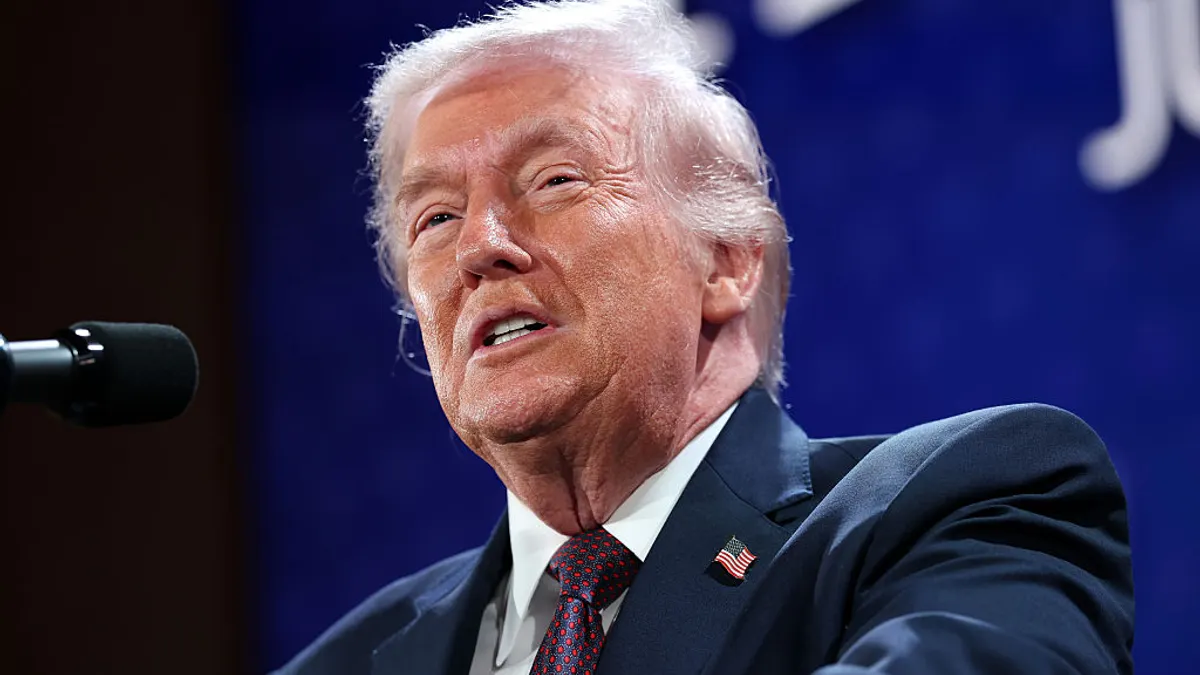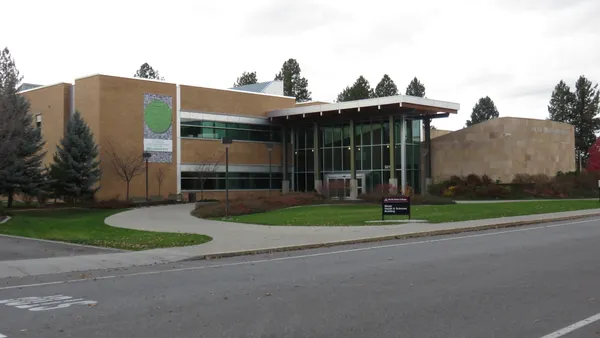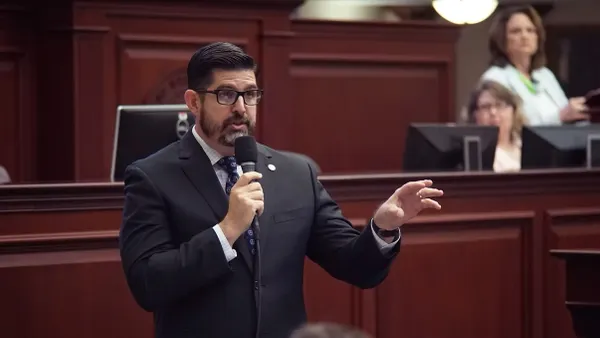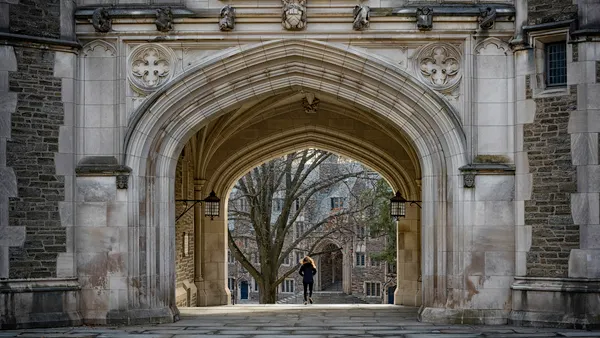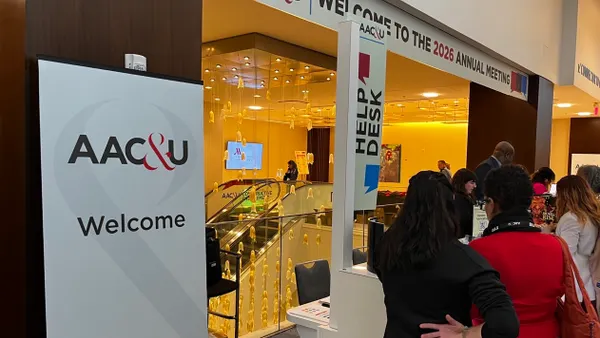Dive Brief:
- University of Nebraska-Lincoln’s faculty senate on Tuesday passed a no-confidence resolution in the public institution’s chancellor, Rodney Bennett, in part over allegations of poor leadership and financial management.
- In a 60-14 vote, faculty approved a measure calling for Bennett’s removal and formally stating no-confidence over allegations of “failures in strategic leadership, fiscal stewardship, governance integrity, external relations, and personnel management.”
- The no-confidence vote — UNL’s first — follows fierce debate at the university over Bennett’s plan to cut a handful of academic programs as part of a broader effort to slash $27.5 million from UNL’s budget.
Dive Insight:
The no-confidence resolution reflects faculty pushback against Bennett since September, when the chancellor unveiled a proposal to slash six programs — which he later reduced to four — as part of a budget-reduction plan.
Criticisms have focused largely on what faculty say is a lack of transparency about how, precisely, programs were judged worthy of keeping or cutting. They also allege that Bennett, who joined UNL as chancellor in 2023, has largely failed to include faculty in the decision-making process.
The budget process and timeline precluded “meaningful faculty and departmental leadership consultation” and “undermines the possibility of completing a thorough review of evidence, consequences, and public comments,” according to a Nov. 3 memo the faculty senate circulated ahead of the no-confidence resolution.
As to the timeline, Bennett announced his initial proposal on Sept. 12, and roughly two months later issued his final recommendation, which the University of Nebraska System’s regents plan to vote on at a Dec. 5 meeting.
The memo also questioned Bennett’s approach to reducing UNL’s deficit, saying that his plan relies on “immediate cost-reductions and across-the-board cuts rather than multi-year fiscal modeling or revenue diversification.”
“This system is a $3.5 to $4 billion enterprise, and we are damaging it for $27.5 million,” Faculty Senate President John Shrader said in prepared remarks at a Nov. 4 meeting. “These cuts are going to be devastating to this campus. So damaging to be irreparable.”
The memo further said Bennett had been “noticeably absent” from several faculty senate meetings and accused him of having periods of sparse contact with the senate’s executive committee, despite UNL bylaws calling for him to meet twice a month with the panel.
“Faculty shared governance represents one of many voices of institutions of higher education,” University of Nebraska System President Jeffrey Gold said in a statement emailed Wednesday. “We value the voice of UNL’s faculty; however, ultimate decisions rest with the Board of Regents.
A UNL spokesperson said Wednesday that Bennett does not plan to comment on the no-confidence vote.
In October, an academic advisory body of faculty, staff, students and administrators tasked with reviewing Bennett’s plan called for more time to consider alternatives to ending programs and voted against winding down four of the original six programs Bennett originally put forward for closure.
Bennett’s final plan spares two programs that were on the chopping block but still included two others that the Academic Planning Committee voted against eliminating.
“None of us want to be in this space, where the decisions we must make will inevitably impact the lives of individuals and change how we do some things on campus,” Bennett said in November when announcing his final proposal. “However, our reality is that UNL's expenses have been greater than its revenue for many years.”
The proposal would slash UNL’s statistics, educational administration, Earth and atmospheric sciences, and textile, merchandising and fashion design programs.
UNL’s chapter of the American Association of University Professors, which has actively opposed the cuts, lauded Tuesday’s no-confidence vote by the faculty senate.
“The faculty has made clear that this chancellor does not have what it takes to lead our flagship institution,” UNL AAUP President Sarah Zuckerman, who is an educational administration professor at the university, said in a statement Tuesday. “We will not accept a lack of transparency, the exclusion of faculty from decision-making, or the erosion of our university’s 156-year-old mission to educate Nebraska’s students.


